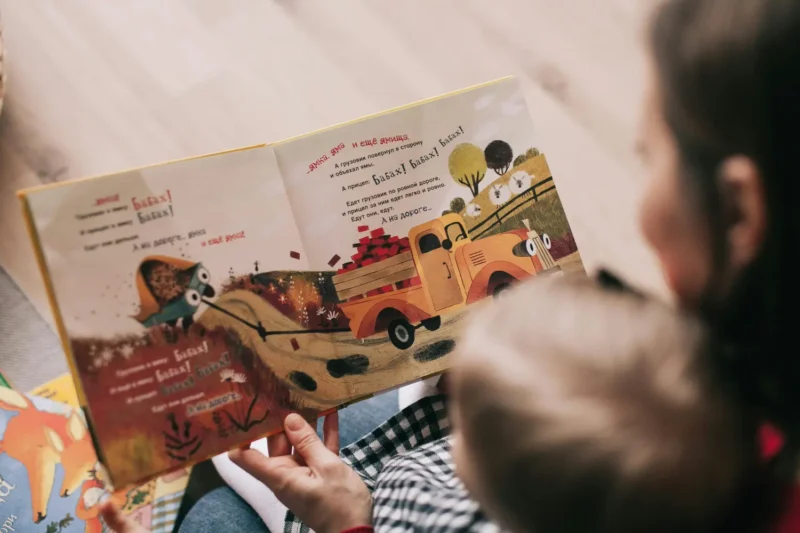The purpose of respite foster care
Respite care is a short-term care arrangement designed to support children in foster and kinship care and their carers. Long-term carers can access respite care when they need a break from their caregiving role. Whether it’s for a weekend, a few days, or a few weeks, it helps to ensure that children can be cared for while their permanent carers can take some time out for themselves. Whether that’s to recharge or tend to personal matters.
Respite foster care helps support foster carers, children and young people, and the foster and kinship care system.
- It supports foster and kinship carers to take the opportunity to rest and recharge so that they can continue caring for those who are in their care
- It allows children to experience new opportunities and build resilience
- It helps to prevent carer burnout, which is extremely important for the foster care system and ensures that they maintain their carers.
You can learn more about the purpose of respite foster care on our website.
Benefits for long-term carers
Respite care is extremely beneficial for long-term foster carers. Not only does it help to reduce carer burnout and support their physical and mental health, but it ensures long-term carers can maintain balance with their own families.
Reduce carer burnout
Being a foster or kinship carer is an extremely rewarding and wonderful experience. Though, as any caregiver knows, caregiving can sometimes lead to physical and emotional exhaustion. To reduce burnout, we encourage carers to access respite care regularly.
Respite care is a great resource for long-term carers. It helps them to reduce feelings of overwhelm, isolation, stress, and exhaustion. It’s important that carers let their practitioner or agency know when they’re starting to experience these feelings so that they can help arrange respite placements to support the young people in their care.
Improve mental and physical health
Breaks are a great opportunity to encourage carers to rest and recharge their mental and physical wellbeing. By improving your mental and physical wellbeing:
- your mood stabilises
- you have more energy
- your relationships with those around you improve
- you’re able to focus better.
Whether it’s for a few days or a week, by taking some time to focus on your health and wellbeing, through respite care, you can continue to show up for your young people, self and other loved ones more effectively.
Improve family time
For many carers, caring for children and young people isn’t an individual decision. It’s usually one made by couples or families. Therefore, it’s not uncommon for families to want to spend some quality time with each other every once and a while.
By accessing respite care, carer families can maintain or strengthen their relationships with each other. If you’re a foster carer, with children of your own, it can also help prevent resentment and maintain healthy relationships with them.
For couples, it can allow you to spend quality time with each other and improve communication and emotional connection while decreasing feelings of stress.

Benefits for respite carers
Respite care can be a great introduction to foster care. It’s also a great way to provide meaningful assistance to the foster care system for those who lead busier lives.
Introduction to foster caring
Many foster carers start their journey as respite carers. Because respite placements are short, it gives them an insight into the system and what it’s like to support children, without having to commit to it full-time.
Some of the reasons why you may choose to start off as a respite carer include:
- it allows you to build confidence and experience
- you learn how to respond to the different needs of children and young people
- you can build greater connections and support networks
- it gives you time to determine how you want to progress moving forward in your foster caring journey – whether that’s providing short- or long-term care.
Alan is a respite foster carer. You can read more about his firsthand experiences here.
A great way for busier families to provide meaningful support
Respite care is a great way to provide meaningful assistance without having to fully commit to caring on a full-time basis. If you lead a busy lifestyle, i.e., work full time and/or have your own busy family, respite care might be suitable for you. It can allow you to care for children and young people over the weekend or for a few weeks at a time.
Benefits for children and young people
Children and young people in care can also benefit from respite foster care placements. Not only does it give their carers a break, but it also allows them to have a break from their primary carers and experience a new home, meet new people and enjoy different activities.
Respite care can also offer children and young people opportunities to:
- rebuild trust and connection with other adults
- develop healthy attachments and reduce fears associated with new relationships
- widen their support network by being introduced to other adults and families
- improve their social skills, adapt to new routines and develop resilience
- gradually adjust to new transitions
- be exposed to new hobbies, routines, or family dynamics.
How to plan and communicate respite care with young people
Planning and communicating respite plans with a foster child is important for their safety and well-being. Especially if it’s their first respite placement, or at least their first placement with their designated primary carer.
Before plans are communicated to the child/ren, details should be confirmed amongst the primary carer, respite carer and fostering agency. These details may include respite timings, who the respite carers are and any information about the child/ren needing respite.
When communicating respite plans with a foster child, they should be communicated in an age-appropriate and reassuring manner. Here are some tips for how carers can talk to their young people about respite care:
- reassure them that they’re not in trouble and that they’re not being sent away
- let them know how they can stay in touch
- help them pack familiar items
- encourage them to ask questions
- arrange a meet up with the respite carers ahead of scheduled respite.

Challenges and considerations of respite foster care
As explained, being a foster carer is an extremely rewarding and wonderful experience. However, like caring for any child, there are times where it can feel challenging and it’s important to keep these potential challenges in mind when starting your caring journey. Here are some of the main challenges of respite care and some considerations when supporting young people experiencing respite.
Challenges and considerations for respite carers
Challenges for carers:
- Difficulties forming emotional attachments, especially as care arrangements are only temporary and don’t give respite carers enough time to connect with young people
- Managing complex needs of children that they’ve not encountered before
- Difficult or complex behavioural and/ or emotional disturbances of young people, particularly because they need time to adjust to a new environment
- How it might impact their free time or family
- Feelings of unpreparedness, particularly because respite placements are short term
- Coordination issues amongst other agencies, networks, schools, or care providers in the young person’s life.
Challenges for children and young people:
For young people going into a respite care arrangement, some of the common challenges that they may experience could include behavioural or emotional disturbances, confusion about why they’re in a new environment or with a new family, and/ or difficulties adjusting to their new arrangement.
Some considerations for helping young people cope with the potential challenges of respite care include:
- being patient and giving young people time and space to settle into their surroundings
- being available to young people when they need support
- gathering as much information about the young person and their care needs as possible prior to their respite placement.
Best practice approaches
Just like any care arrangement, it’s important that the wellbeing and best interests of children and young people are prioritised during a respite foster care arrangement. Unfortunately, children in care experience a lot of instability and change. Therefore, their experiences with respite care should be as positive and stable as possible.
Best practice approaches to respite care include helping children and young people to maintain connection with their long-term carers, community and culture and celebrating their cultural needs in inclusive ways. Caregivers should also stay up to date with their training and deliver care in a trauma-informed manner to support young people with healing from their experiences.
Again, when long-term carers and respite carers unite to arrange respite, they should be considerate of the feelings and/or concerns of their young people. They should be honest and reassuring by affirming that respite care is a short-term arrangement and that they’ll return to their long-term carers soon. How this message is communicated should also be done in an age-appropriate way.
Conclusion
In conclusion, respite foster care plays an imperative role in the foster and kinship care system. It helps long-term caregivers to access well-earned breaks so that they can reset and continue providing care, it helps children and young people to develop new experiences and supports respite carers to make a meaningful difference.
If you’re a long-term carer and would like to learn more about accessing this type of support, please contact your local foster care office or practitioner.
Alternatively, if you’re thinking about becoming a respite foster carer, contact us today.
